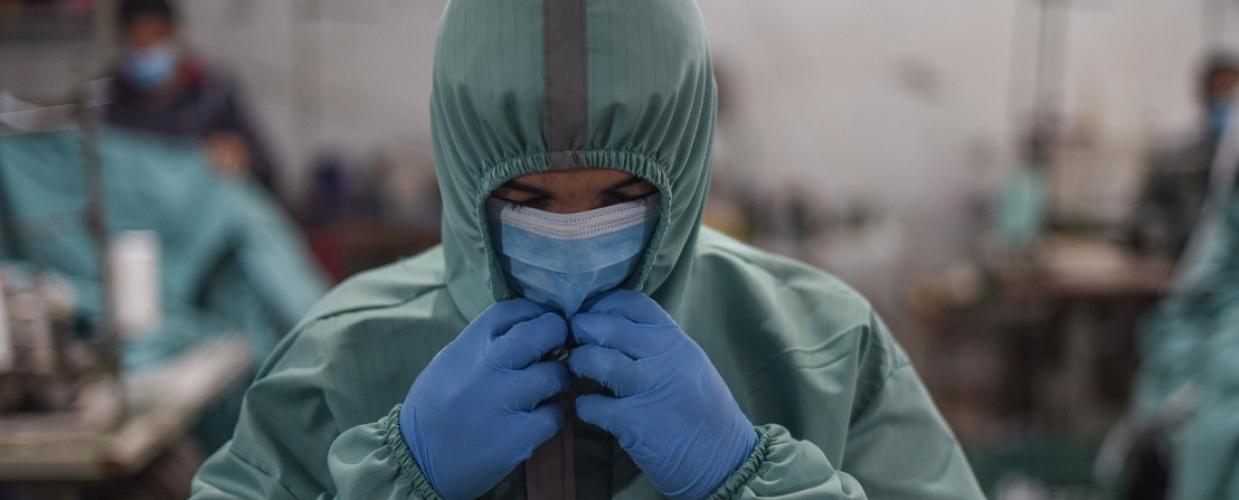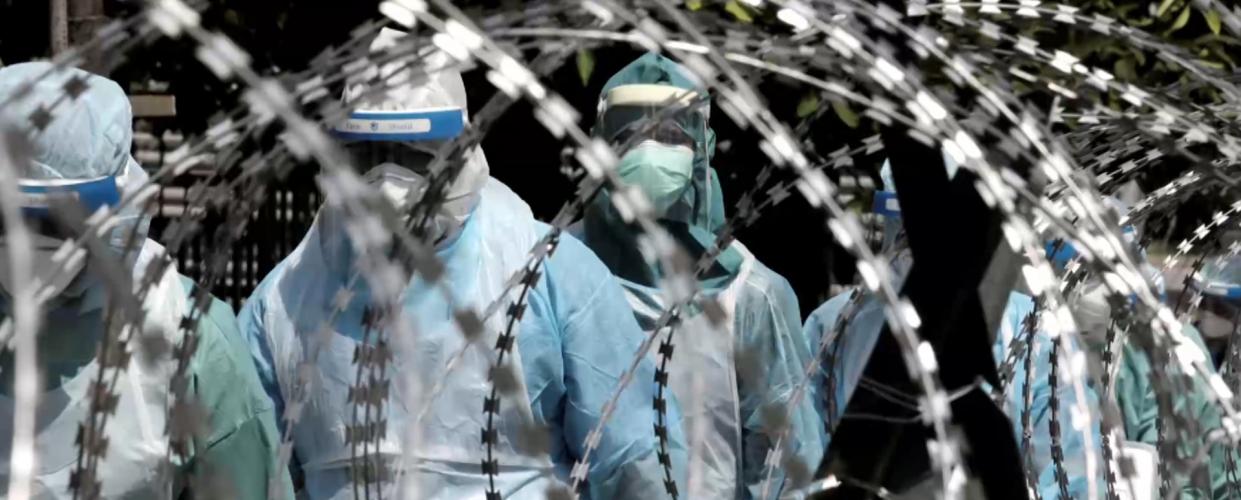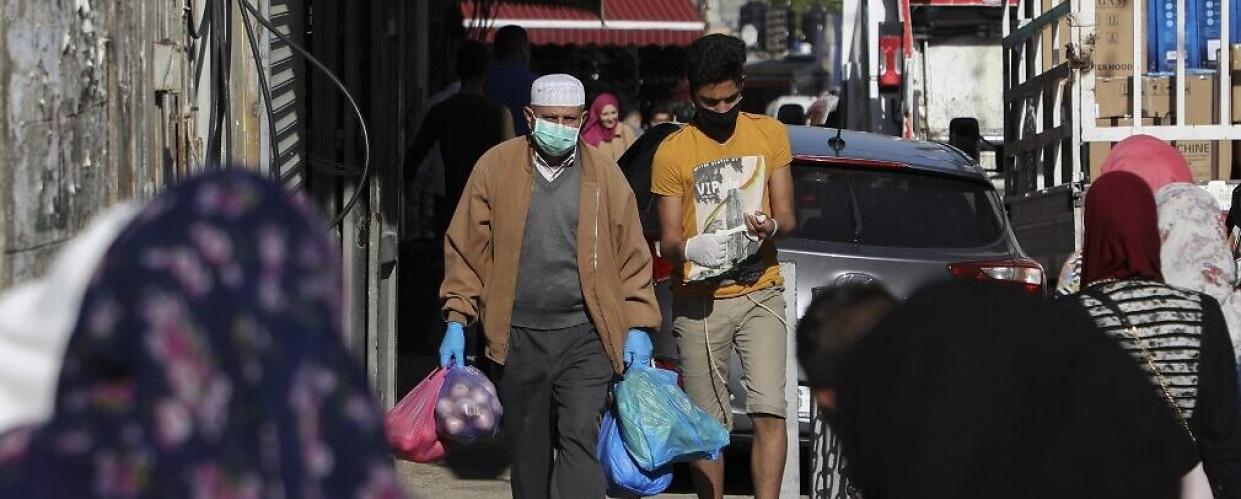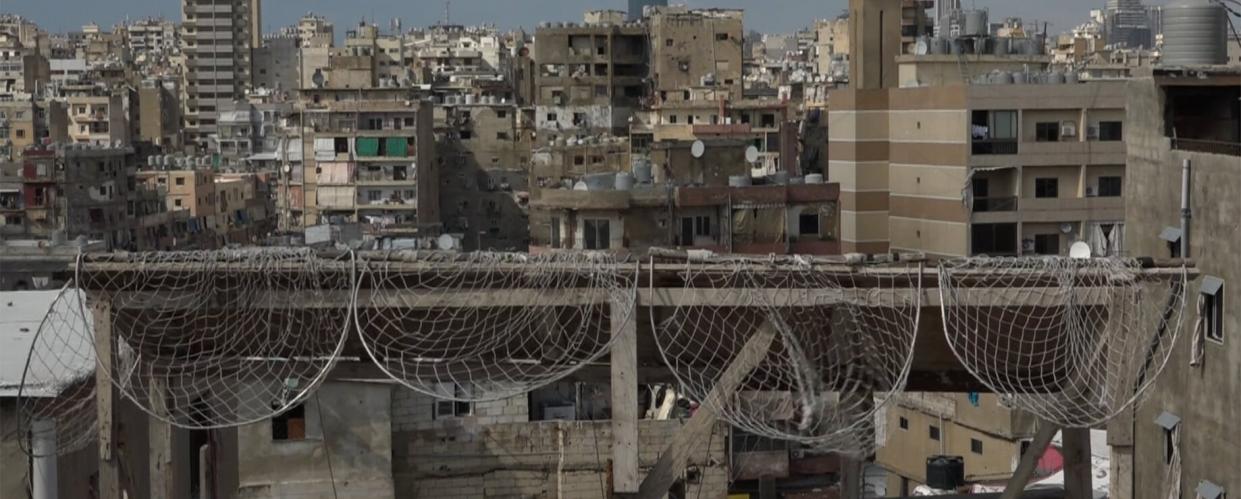
February 22 2021 Arabic

December 23 2020 Arabic

December 22 2020 Arabic

November 26 2020 Arabic

November 03 2020 Arabic

October 27 2020 Arabic

October 19 2020 Arabic

September 10 2020 Arabic

June 08 2020 Arabic


Ten years ago, we used to exchange letters when he was being held in the Ofer Prison, which he dubbed in one of his letters, “the stone grave.” He went on to say: “One day we will turn it into a museum, school, or children’s hospital, in the hope of restoring some balance to the place and in order to erase its malevolent history.”
When the passion and longing intensified in our letters, he confessed his love to me, directly and without pride or complications. At that point, I wrote to him saying: “You’re my rock, and upon this rock, I will build my church.”
We had 10 very generous years together, which brought with them marriage and three brave sons conceived in love, Khalid, Ghassan, and Basil. After that, Ubay was once again in Ofer Prison, which we will one day transform into a museum, school, or children’s hospital. He still writes to me, and though my name has been transformed into various nicknames, the letters still find their way to my heart. Oddly enough, the names have not changed for security reasons at all, but for emotional reasons, which carry a good deal of coyness and mutual exploration of feelings. In earlier times, I used to be addressed as “Miss Hind Shreideh,” whereas now the letters start: “My love, my beautiful wife Hind.” At other times, because of traditional social norms that cause me to roll my eyes in amusement, the back of the letter reads: “Please deliver to Umm Khalid [mother of Khalid].”
Ubay the Dissident
The occupation abducted Ubay and stole him from his family, home, and friends, as well as from the Beisan Center for Research and Development. This left a big gap that can’t be filled by the fragments of connectedness that we rely on in order to survive, the visits and the letters. There are no instructions that can help you get adjusted to absence, or that would enable you to remember what you have to do to habituate yourself to the reality of the situation. Now, over and above forced separation, due to sheer blind fate, a pandemic has invaded the region, once again emphatically fulfilling the prophecy made by ‘Abdul Rahman Munif in his novel, the sequel to East of the Mediterranean: “the entire East is the homeland of possibility.” Palestine has not been spared Corona’s viral invasion. It’s a case of two plagues at once. One is a visible occupation that ravages your corporeal and existential being, hovering over your land and imposing itself as your master, while controlling your food, drink, housing, tax bills, and even your children’s identities. The other is closely related: an impending colonizing virus that is just around the corner, which is invisible but will assert itself in your airways, and will compete with you for oxygen as you try to catch your breath.
“How can we talk about anything else, as long as prison is our shame, it devours the bloom of youth and our best men, and it follows us even in exile?” ‘Abdul Rahman Munif writes in the sequel to East of the Mediterranean.
In an exile that does not befit them, as in Munif’s novel, 5500 free men and women, including Ubay, are sequestered in incarceration. They live in abominable cramped quarters with dismal restrictions, in shades of brown that bear no relation to the color of chocolate and drab greys far removed from shiny silver. They make do with the most minimal requirements for a healthy constitution, subject to severe punitive measures, like vile teargas, beatings with clubs, and isolation cells. Their seclusion has increased in the wake of the Coronavirus, while remaining always under the close observation of their captors. Since the proliferation of the virus, the restrictions on prisoners and their families have multiplied, beginning with the prohibition on visits, which take place behind glass without physical contact and by means of telephones that obviously don’t transmit aerosol droplets. Trials have been postponed, clearly not to safeguard prisoners, but in order not to lead to situations which would reveal the racist nature of the occupation for everyone to see. If one of our Palestinian prisoners were to be infected the Israelis would clearly not allow them to have face masks while giving them to Israelis. That is what they would do in any case, but it would occur in plain sight.
Meanwhile, I remain heartbroken, like many whose loved ones are imprisoned, and find myself contemplating numerous possibilities. Various scenarios occur to me regarding Ubay and his immune system, which is not what it should be for a young man of 36, but is similar to that of an elderly man twice his age. The occupation has already stolen five years of his life in two separate imprisonments and this is now his third sentence. I remind myself that he coughs every time someone lights a cigarette close by, that he has a sensitive stomach, and that he can come down with a cold that leaves him bedridden twice in a single month. How likely is it that this dissident will succumb to the Coronavirus?
To escape from my frenzied thoughts, I listen to the music of [Egyptian political artist] Shaykh Imam: “Each day I love you restrictions increase, each day more than the one before.”
You need tons of patience and serenity to switch off your imagination. But that doesn’t accomplish anything, despite your entreaties to God that your loved ones not suffer any hardship in circumstances that you’re unfamiliar with and don’t fully comprehend. Everything you know about the darkness of that place derives from what you have heard and read. Your loved ones are trapped inside it at the mercy of a captor who is always devising new techniques of persecution and torture. At a time when the entire world is preoccupied with the scourge of the Coronavirus, the prison authorities introduce arbitrary measures to suppress the permanent thorn in their sides, namely the prisoners. There are currently 140 vital provisions and cleaning supplies that are unavailable in the prison canteen, including alcohol disinfectant, soaps, protective gear, and vitamins, which would give prisoners the wherewithal to fight back against the virus at least. But nothing will cleanse our “future museum,” which is now being guarded by our prisoners, except their resolute will, which is built on the rock of freedom.









